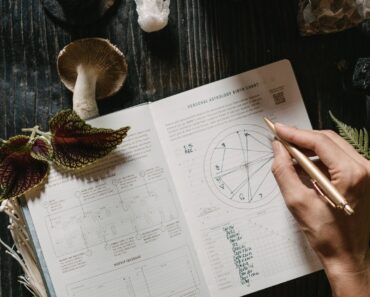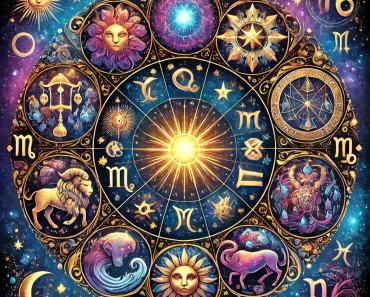The relationship between religion and spirituality has been a topic of debate for centuries. While some see religion and spirituality as interchangeable, others believe that they are distinct concepts that may overlap. In this article, we will explore the relationship between religion and spirituality and how they can complement each other.
Defining Religion and Spirituality
Before we can discuss the relationship between religion and spirituality, it is important to define both terms. Religion can be defined as a set of beliefs, practices, and traditions that are organized around a particular faith or deity. It often involves the worship of a higher power, adherence to a specific doctrine or dogma, and a set of moral or ethical codes.
Spirituality, on the other hand, is a more abstract concept that involves a sense of connection to something greater than oneself. It often involves seeking a deeper understanding of the world and one’s place in it, and may or may not involve the worship of a specific deity or adherence to a particular set of beliefs.
The Relationship between Religion and Spirituality
While religion and spirituality are often used interchangeably, there are important differences between the two. Religion is often seen as a more organized and structured system of beliefs and practices, while spirituality is viewed as a more personal and individualized experience.
However, it is important to note that religion and spirituality are not mutually exclusive. Many people find that their religious beliefs and practices enhance their spiritual experiences, while others may find that their spirituality enhances their religious practices. In fact, some argue that true spirituality cannot exist without religion, as religion provides a framework for spiritual growth and development.
The Benefits of Religion and Spirituality
Both religion and spirituality have been shown to have a number of benefits for individuals. Studies have found that individuals who practice religion or engage in spiritual practices often report higher levels of well-being, greater levels of happiness, and lower levels of stress and anxiety.
Religious and spiritual practices have also been linked to better physical health outcomes. For example, studies have found that individuals who attend religious services regularly have lower blood pressure, reduced risk of heart disease, and longer life expectancy.
Spirituality can also provide individuals with a sense of purpose and meaning in life. By connecting with something greater than themselves, individuals can find a deeper understanding of their place in the world and their purpose in life.
Challenges in the Relationship between Religion and Spirituality
While there are many benefits to the relationship between religion and spirituality, there are also challenges that can arise. One of the biggest challenges is the potential for religious dogma to conflict with individual beliefs and experiences.
Individuals may also struggle with the expectations and social pressures that can come with organized religion. For example, individuals may feel pressure to conform to a specific set of beliefs or practices, even if they do not resonate with them personally.
Additionally, some individuals may feel that religion is exclusionary or intolerant of other beliefs and practices. This can create a sense of division and conflict, rather than unity and understanding.
Finding a Balance between Religion and Spirituality
For individuals who are looking to deepen their spiritual practices or explore their relationship with religion, it is important to find a balance between the two. This can involve finding a religious community or organization that aligns with personal beliefs and values, while also engaging in personal spiritual practices that provide a sense of connection and meaning.
Individuals can also benefit from exploring different religious and spiritual traditions, and finding commonalities and shared values across different faiths and belief systems. By embracing a more inclusive and open-minded approach, individuals can find a greater sense of connection and understanding in their spiritual journey.
The Benefits and Drawbacks of Organized Religion
Organized religion can provide a strong sense of community and support for individuals, as well as a clear framework for understanding the divine and their place in the world. However, it can also be rigid and exclusionary, limiting individual exploration and growth. It’s important for individuals to weigh the benefits and drawbacks of organized religion for themselves, and decide whether it aligns with their spiritual beliefs and practices.
Balancing Religion and Spirituality in a Changing World
As our world becomes increasingly diverse and interconnected, it’s important to find ways to balance religion and spirituality in a way that is inclusive and respectful of all beliefs. This might involve exploring different spiritual practices or seeking out religious communities that are more open and accepting. It may also involve taking a more individualized approach to spirituality, focusing on personal growth and connection with a higher power rather than adhering to a specific religious doctrine.
Overall, the relationship between religion and spirituality is complex and deeply personal. By exploring the benefits and drawbacks of organized religion, focusing on personal growth and self-discovery through spirituality, and finding ways to balance religion and spirituality in a changing world, individuals can deepen their spiritual practice and find greater meaning and purpose in their lives.
Conclusion
The relationship between religion and spirituality is a complex and multifaceted concept. While they are often used interchangeably, it is important to recognize the differences between the two, and how they can complement each other. Death is a universal human experience that can be difficult to understand and cope with. For many people, spirituality plays an important role in how they approach end-of-life experiences. In this article, we’ll explore the ways in which spirituality can help individuals understand and cope with death, as well as some of the challenges and opportunities that arise in the face of mortality.






